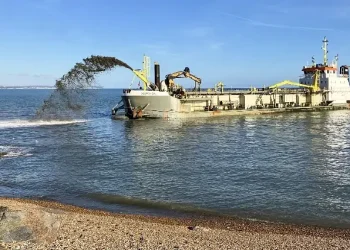Starting June 23, 2025, UK water companies must integrate nature-based solutions like wetlands and riparian buffers into their Drainage and Wastewater Management Plans (DWMPs), enhancing transparency and accountability in wastewater management.
This legal requirement aims to improve water quality, reduce flood risks, and support biodiversity across the UK.
Embracing Nature-Based Solutions
The Water (Special Measures) Act introduces a significant shift in how UK water companies manage wastewater.
By mandating the consideration of nature-based solutions such as constructed wetlands and riparian buffers, the Act encourages sustainable practices that offer multiple benefits beyond traditional infrastructure.
These natural methods not only improve water quality but also contribute to flood risk reduction and biodiversity enhancement.
Increased Transparency
This new requirement is part of broader government efforts to clean UK waterways sustainably. By incorporating these solutions into statutory DWMPs, water companies are expected to provide transparent explanations of their use or non-use of such methods.
This transparency allows the public to better understand how natural approaches are being considered alongside conventional infrastructure.
Environmental Benefits for Communities
- Improved water quality in local rivers and streams
- Reduced health risks associated with polluted waterways
- Enhanced local environments through increased biodiversity
- Flood risk reduction protecting homes and properties
- Creation of green spaces for community recreation
A Shift Towards Sustainable Water Management
This development signals a shift towards integrating ecological approaches into infrastructure projects for professionals in environmental management, engineering, and urban planning.
Businesses involved in construction and environmental consultancy may find new opportunities or requirements arising from this change.
Financially, companies will need to balance traditional methods with nature-based solutions, potentially affecting investment strategies and operational costs.
Sustainable Water Governance on a Global Stage
The UK’s move positions it as a leader in sustainable water governance globally. Aligning with international commitments like the UN Sustainable Development Goals, this approach could serve as a model for other countries looking to integrate ecological methods with regulatory transparency.
Stronger water quality standards may also impact cross-border water bodies shared with the EU, necessitating coordinated management efforts.
Additional Reading
Wrapping Up
The integration of nature-based solutions into wastewater management marks a pivotal step towards sustainable practices in the UK’s water industry.
As companies adapt to these changes, communities can anticipate cleaner waterways and enhanced environments while benefiting from increased transparency and accountability from their local service providers.
Sources: UK Government, UK Parliament House of Commons Library, Marine Conservation Society, Department for Environment, Food & Rural Affairs and The Rt Hon Steve Reed OBE MP.
Prepared by Ivan Alexander Golden, Founder of THX News™, an independent news organization delivering timely insights from global official sources. Combines AI-analyzed research with human-edited accuracy and context.









